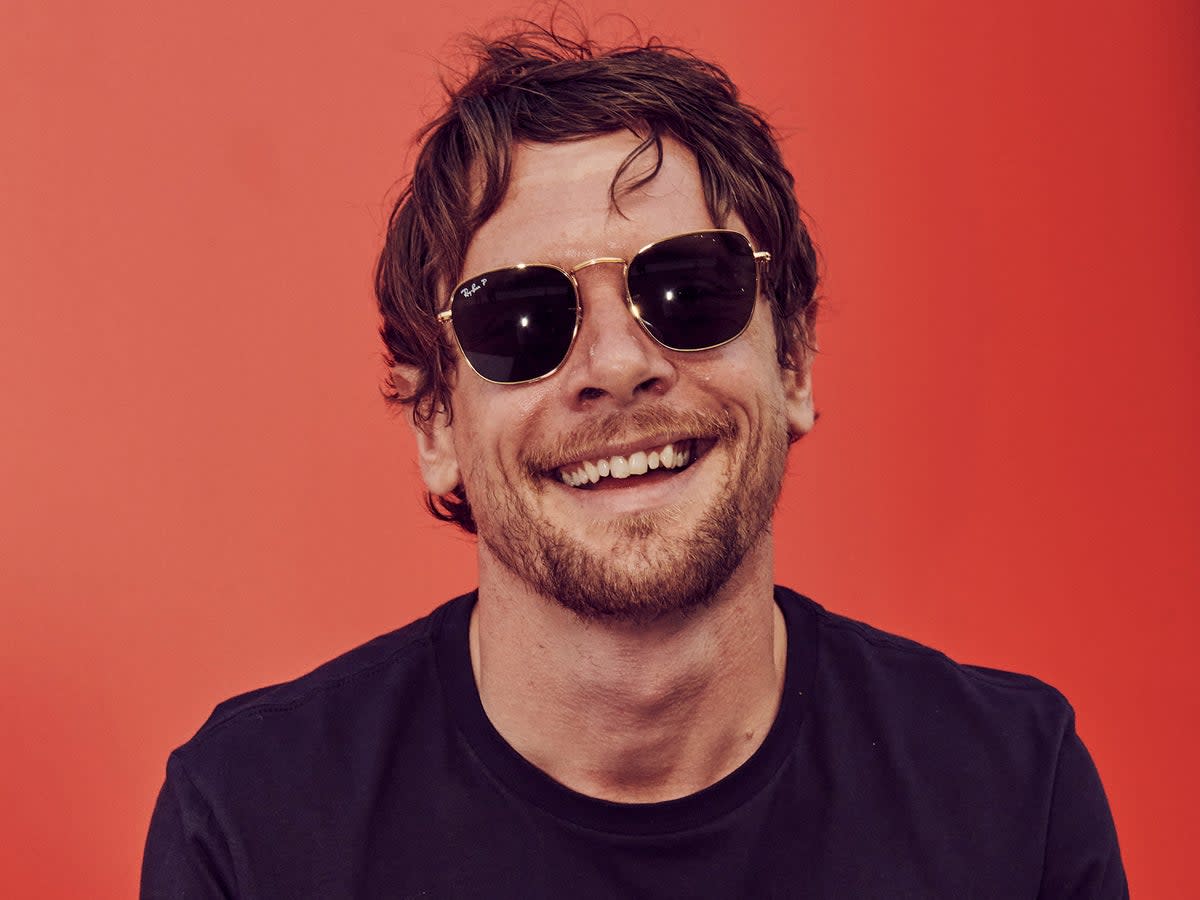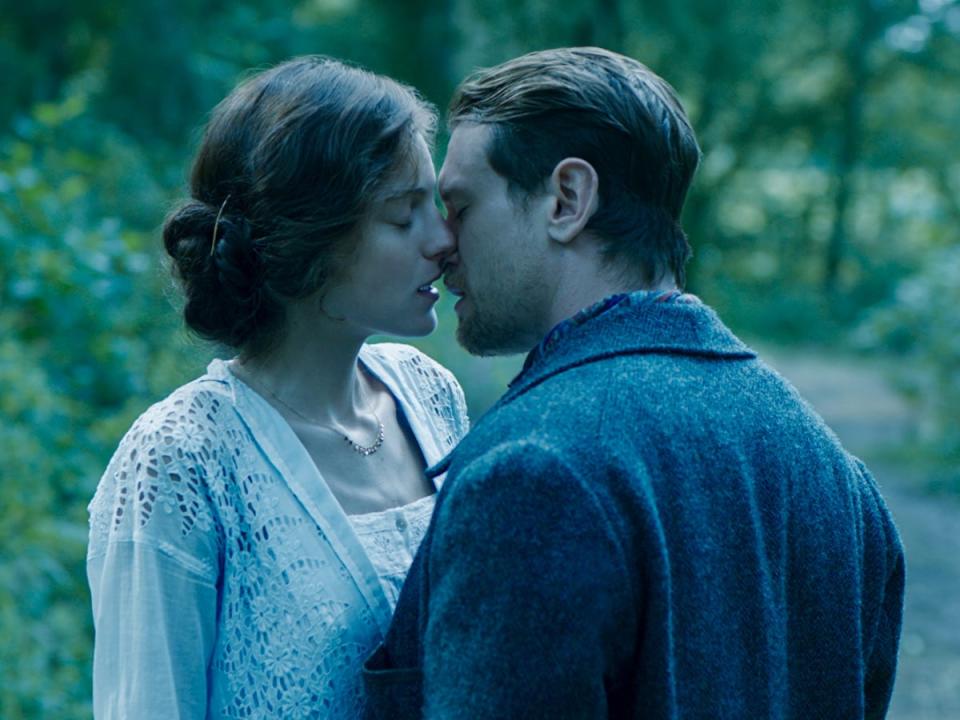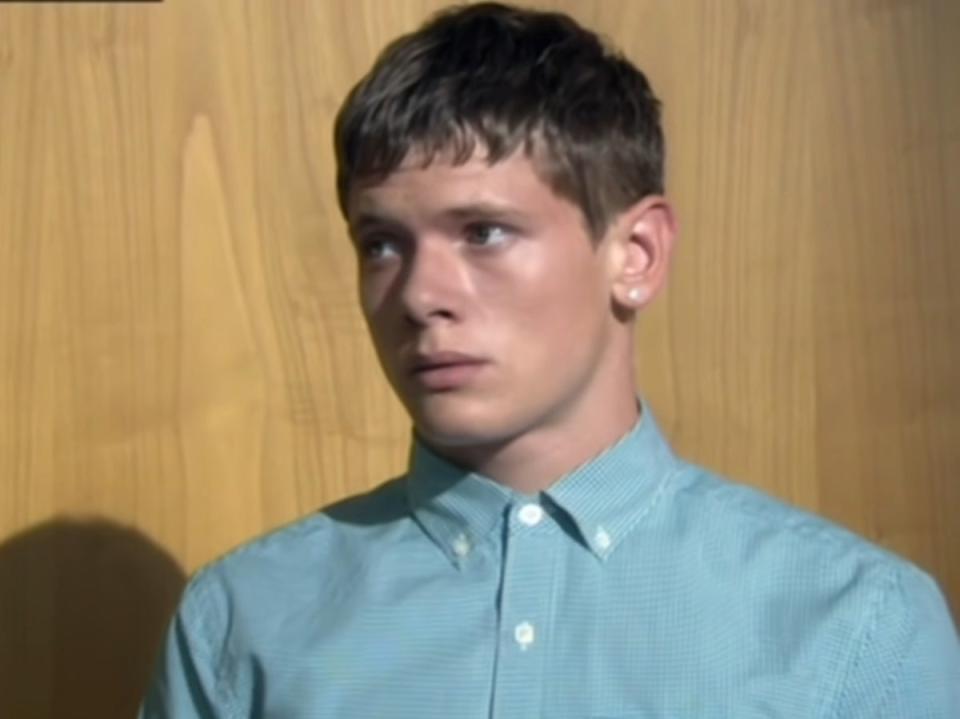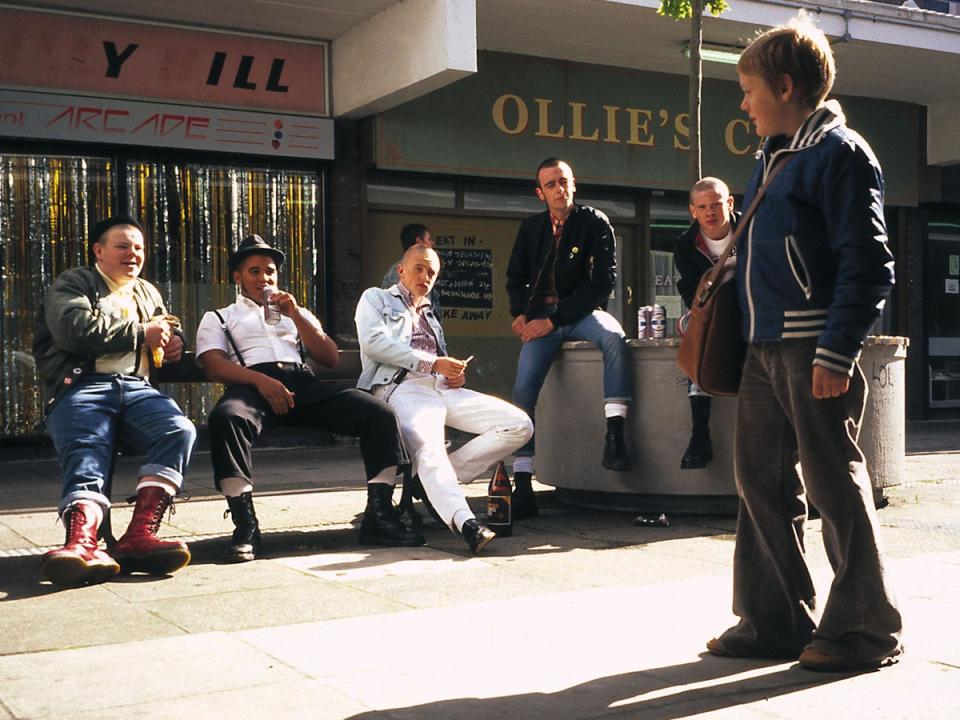‘It’s quarter to 12 – are you already on it?’: Jack O’Connell on his wild youth, being naïve, and Lady Chatterley’s Lover

It’s impossible to take your eyes off him.” Jack O’Connell is singing the praises of Stephen Graham, whom he first met on the set of Shane Meadows’s modern classic This is England. Graham was 33; O’Connell was 16. They both played skinheads. Shorn skulls, fast fists, and racism never far away. “It was tough material but Stephen approaches it with this realism. He is just so…” O’Connell can’t find the words. Instead, the actor sinks into his sofa and shakes his head in awe. He’s still sporting the buzz cut.
In fact, the same can and has been said of O’Connell himself. The 32-year-old has been making easy work of tough material ever since his film debut as the braces-wearing spark plug Pukey in This Is England. The parts that followed mined similar wells of emotions. Namely, anger. For the better part of two decades, O’Connell has played troubled young men with a nasty uppercut and an East Midlands accent: a hedonistic kid (Skins), a soldier (’71), a prison inmate (Starred Up). But there is tenderness to his performances in a way that challenges our perceptions of male aggression. By turns, he is gentle and brutal. It’s a sight to behold on screen and at his best, well, it’s impossible to take your eyes off him.
Today, O’Connell looks a lot like the characters that made him famous. He’s wearing a baggy white hooded sweatshirt; his hair, what little there is of it, is cocooned in fleece. “Ello Annabel, y’alright?” he grins, a cheeky row of imperfect teeth. That famous on-screen charisma, it turns out, is all his own. Certainly, he shows it off in his latest film Lady Chatterley’s Lover. In the new Netflix adaptation of DH Lawrence’s 1928 novel, O’Connell plays the eponymous lover to Emma Corrin’s Lady. It is a fittingly steamy adaptation of a steamy book. Both O’Connell and Corrin appear nude. A lot. In one scene, they frolic in the middle of a storm naked as the day they were born, bits and all.
There aren’t many actors who would run starkers across a field for a Netflix film, but as O’Connell dutifully reminds me, this ain’t his first rodeo. In 2017, he bared all on stage opposite Sienna Miller in a West End production of Cat on a Hot Tin Roof. Before that, he stripped off in Starred Up (2013). And of course, on Skins, his character was often caught with his trousers down. “Still, there’s always going to be nerves,” he says. “But listen, if it’s going to push the story forward then that’s that.” His ethos on choosing when and where to strip off is simple: “Words to the effect of, if it can’t be avoided, just crack on with it.” Is he at all concerned that those scenes will end up on some X-rated website out of context? “I guess so,” he exhales the cigarette smoke slowly so that it collects around his mouth. “But I’m not on social media so if something was out there, it wouldn’t necessarily be on my radar.” Ignorance is bliss, it seems. “But it would be unfortunate,” he concedes.
He and Corrin worked together with Ita O’Brien, an intimacy coordinator. Two words unheard of when O’Connell was just a young lad getting his start as Cook, a randy, raucous teen on Skins. “My career definitely predates the intimacy coordinator age.” Last year, fellow Skins stars April Pearson and Laya Lewis, both of whom preceded O’Connell’s arrival in season three, have since said they didn’t feel protected on the show. Was he ever uncomfortable? “It’s hard to say that you’re ever totally comfortable [filming sex scenes]. Listen, I admit I was very naive at the time, enough so as to not check in with myself and question myself if I was feeling comfortable or not. It just felt like part and parcel of the programme in a very different time than the one we’re in now.”
It’s better now, O’Connell clarifies. “I think what’s important is that them discussions are being had to make sure that whatever was happening [on Skins] that wasn’t right, it seems, is addressed and doesn’t repeat itself.” The fact of the matter is, however, natural or sexy it may look, feigning intercourse on screen is nerve-wracking. “You feel very compromised and if you don’t feel that you’re protected in that environment, it can be very unnecessarily daunting.”
In person, O’Connell is polite and charming, with a tendency to scratch his chin in thought. That he’s so free of ego makes it easy to forget he has worked with Judi Dench, George Clooney, and Michael Caine – the latter called him “the star of the future”. Or that he was hand-picked by Angelina Jolie for her 2014 war film Unbroken. His easy nature may owe something to his very British, down home upbringing. He grew up working class in Derby, in a family home between two housing estates. His late father worked on the railways and his mother at British Midland airlines. As a boy, he loved playing football and was good enough at it that the hopes he harboured of going pro weren’t entirely delusional. He also entertained the possibility of joining the army.
His secondary school in Derby was the kind of place where you get kicked around for having a different haircut, O’Connell says. Was he ever caught with an unchic crop? “Once or twice,” he says with a smirk. “But I was always a bit quick on my feet.” School wasn’t all bad; it was there that he took his first drama class, which led to an audition at the television workshop in Nottingham where he met Shane Meadows. O’Connell counts himself lucky that he came up when he did. Back when art programmes weren’t being slashed across the board. “It’s upsetting to see it’s expendable when really, creative arts in this country should be accessible to all – and that’s just not the case.”

His family weren’t necessarily cinema-going folk. “My dad would probably be into Only Fools and Horses over Chariots of Fire.” But O’Connell did later learn that his mum’s grandfather used to run a cinema in Derby so maybe that was a bit of fate that led to his career on screen, he shrugs. His bedroom was filled with typical boy stuff, including a massive poster of David Beckham scoring against Greece in the 2001 World Cup Qualifiers. There was also a CD player. Plus, a little telly, “if I was behaving”. If the stories are true, telly was a rare treat.
At this point, O’Connell turns the tables. “Sorry, but I got to ask you this Annabel,” he ventures. “So far I’ve seen you fiddling with a lighter and a corkscrew. It’s quarter to 12 – are you already on it?” I assure him that I am just a nervous fidgeter. My mug has nothing but instant coffee in it. He laughs hard. “Alright, I just had to make sure.” It’s been some time since O’Connell was on a pre-noon sesh himself, although much has been made of his hedonistic past. Admittedly, the myth coalesces nicely with the man on screen. A story of court appearances and party-going dovetails nicely with the carriage of characters O’Connell plays on screen – and perhaps explains why he is able to bring such authenticity to those roles. But as O’Connell says now with an exasperated sigh: It was a long, long time ago. “My grandma is sick to death of it being brought up in interviews,” he says. “I’ve got nothing to hide and it doesn’t harbour any shame but it’s such a long time ago that it’s almost irrelevant. These days, the only two times I find myself talking about it is either in interviews or at the US embassy when I’m trying to get a visa.” Later he tells me that his crimes were small fry. “People where I grew up did a lot worse than me.”
It’s a bit of a chicken-or-egg situation when it comes to O’Connell. Was he cast in tough guy roles because he was a tough guy, or did being cast in tough guy roles cultivate an image – and lifestyle – he lived up to? Probably a bit of both. “Whether or not Cook [in Skins] and me were similar, I guess in some ways we definitely were. But in others, life was imitating art to a degree because it became such an intrinsic part of your life at the time.” O’Connell was only 17 when he was cast in Skins; fame came quickly.

“There was an awful lot going on,” he says. The problem wasn’t so much with the work but what happened when he wasn’t working. “No one tells you what to do in your downtime. The kind of films that were put in front of me in my early twenties, they were enormous opportunities but they can come at a personal cost if you don’t have the right steerage,” he says, running a hand over the bristles of his head beneath his hoodie. “And I don’t think I had the right steerage. I had amazing people around me – still do – but it can be a lot to endure, not just the work side of things but how you decide to spend your time when you’re not working. There’s no handbook on that. It takes time and it takes experience.” Luckily, O’Connell has had plenty of both. “I’m certainly at a point where I have things outside of work that are very important to me and I think that’s been the main distinction between where I was then and where I’m at now.” Those interests are the simple things: eating right, staying fit, making time for the people he cares about. When he isn’t shooting on location in, say, the Sahara (Steven Knight’s SAS: Rogue Heroes) or the Arctic Circle (The North Water), O’Connell wants a bit of quiet. “I’ve got a lovely little caravan that I can park more or less anywhere and just chill out for a bit. I think it’s quite nice to just be a bit f***ing boring.” There’s that grin again.
It certainly helps to have a bit of spare cash floating around, which is something that you don’t typically see in areas like the one I’m from
Although those days are behind him, the spectre of his past casts a long shadow over the characters and films he is being offered. Over time, he has seen the scripts he is sent diversify somewhat. “I’d like to see them change more,” he says matter-of-factly. It’s a fair point. On the rare occasion that he is allowed to sink his teeth into a new type of character, he has more than proven himself. He wasn’t the obvious choice to play a 19th-century surgeon in BBC’s The North Water, nor a gun-slinging cowboy in the brilliant 2017 Netflix miniseries Godless, but in both he was astounding.

O’Connell likes to keep his head below the parapet. Hence no social media. Put it like this, he says, “I don’t think I’ll be doing I’m a Celebrity anytime soon.” Not joining Matt Hancock in the jungle then? “I think his motivations for going on it were very different to what mine would be,” he chuckles. What he would like to do, though, is give a young working-class actor what Stephen Graham gave him all those years ago: guidance to break into the industry. “It isn’t easy. It’s something that Stephen can relate to. It’s something that I can relate to,” he says. “I don’t think it’s easy for anyone but it’s definitely easier for some than others. It certainly helps to have a bit of spare cash floating around, which is something that you don’t typically see in areas like the ones that me and Stephen are from.”
Listen, he says, “We can all sit here and sound off about it but thankfully Stephen and maybe myself are in positions where we can actually enact some form of change.” O’Connell has always been more of a doer than a talker.
‘Lady Chatterley’s Lover’ is on Netflix now

 Yahoo News
Yahoo News 
